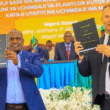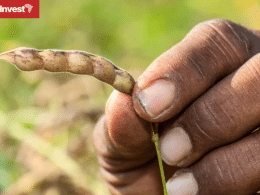Tanzania agriculture is currently being promoted by the country’s Standard Chartered Bank in an effort to increase production for both domestic and exports services.
In order to accomplish this feat, the CEO of the bank, Jeremy Awori, has been urging the government to increase their promotion of these farmers.
According to a recent interview with the East African Business Week (EABW), Mr. Awori has indicated that the bank is working to develop the country’s agricultural sector through the help and expertise of both its South African based and local forces.
“Our bank is committed to the agricultural industry in the country and we have already dedicated staff, who are working on the sector,” he said to the EABW.
Mr. Awori went on to indicate that the bank was ready to team up with the government as well as the Bank of Tanzania (BoT) in order to develop the sector and transform the country into a large-scale commercial farming enterprise.
“There is no large scale commercial farming in Tanzania,” said Mr. Awori, “This is one area of opportunity, which the country could tap because if investors come and have 50,000 -100,000 hectares they could offer employment to many people.”
In order to help finance the sector, Mr. Awori pointed to Micro Finance Institutions (MFI) as a potential area for opportunity to explore.
“There is an opportunity for MFIs helping to find the agriculture hand user,” he said, “because we as a bank cannot be able to go out and find the individual farmers for lending.”
The decision to begin working on the development of this sector has come as a result of advice by the former vice president and Prime Minister, Cleopa Msuya, who spoke earlier this year indicating that there was a need for the government to identify and support the local population so as to increase production.
According to Mr. Msuya, overall production would increase as a result of giving land and credit to the locals.
“There is a need to change the agricultural industry from smallholder growers to commercial farming,” said Mr. Msuya, “We can give support to retired civil servants and politicians who are willing to invest in agriculture by setting aside about 3,000 or 50,000 hectares for this purpose.”
In addition to this, Mr. Msuya also said that with a deliberate policy that was designed to assist investors in the sector, the chances of performing well were increased.
“Cooperation between the ministries of lands and agriculture should be enhanced in such a way that it makes it easier for investors to acquire land in any region of the country,” he said.










